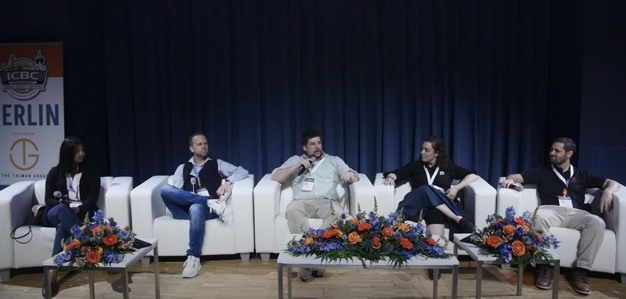How are innovative technologies being used to increase efficiency, improve product quality, and reduce environmental impact in the cannabis industry? From tissue culture to wastewater management, there are many technologies out there to help cannabis growers improve their production. At the recent ICBC event in Berlin, one of the panel discussions was focused on such developments.
Tissue culture
When it comes to propagation, Lucas Targos of urban-gro says that they're seeing an increased demand for having tissue culture labs and practices in facilities. "It's become an evolution. With viruses working their way through the industry, tissue culture provides a very helpful safety net. Whether it's a retrofit or you're looking at building a new facility, allocating space to a tissue culture lab can help to de-risk a lot and provides genetic security."
Timo Bongartz of Fluence adds that with tissue culture, you also have the possibility of having the backup at another location. "From a business perspective, it makes you a little more resilient. If there is a problem, you have some backups." Deron Caplan of Sostanza also mentions that, especially now with Hop Latent Viroid affecting many growers, tissue culture is becoming more and more important. "If your mother stock is infected, there might not be a way of getting rid of it. Having tissue culture reserves is one of the only ways to really secure your genetics."
Sustainability
Cannabis is often criticized for not being the most environmentally sustainable industry. So are there any developments being made on that front? According to Sabrina Carvalho of Philips Horticulture LED Solutions, people are noticing the need to make changes. "In the European Union, you have the rules of the country as well as the rules of the European Union. We all know that the European Union will become more strict on how much energy we can spend, whether we like it or not. And some countries are also already becoming more strict. The Netherlands, for example, will only support companies with subsidies and discounts if they fulfill this energy cap. If you go over it, you will not be supported. More similar rules will follow in the European Union, it's only a matter of time."
Sonny Moerenhout of Cultivators adds that it's not just about energy, it's also important to look at all the other sources used to grow plants. "In The Netherlands, the horticultural industry has to deal with a zero emission law in 2027. From that moment, growers cannot discharge any water anymore. All the water they are using needs to be disinfected and reused." Deron Caplan adds that recirculating water is not a common practice for cannabis growers. "It's complicated. If you're recirculating your nutrient solution, you have to readjust specific elements, which is not easy if you don't understand each component of the fertilizer you're using."
Lucas Targos mentions ozone as a new technology to disinfect water. "At urban-gro, we work on the wastewater management side a lot. It's challenging to recirculate because a lot of cannabis fertilizers contain high heavy metals and a lot of organic materials, which make UV not as effective. Ozone is a great technology to disinfect water that has been making waves in the industry. Also, another great option is to recapture condensate being produced from the HVAC. Although, that water is often too clean, so that comes with its own challenges."
Substrates
The panelists also discussed that it is a challenge to make a sustainable choice when it comes to substrates. Deron Caplan mentions that many cannabis growers want to make a sustainable choice when it comes to substrates, and will opt for coco coir. Yet Sonny Moerenhout adds that in the medicinal market in Europe, there is a move towards stone wool. "It's clean, inert and you start uniform. That is more difficult when growing in soil or coco peat because it's a mixture, meaning that having one pot exactly the same as another pot becomes more difficult." Timo Bongartz adds that that does pose a challenge when it comes to sustainability. "Stone wool answers the consistency question, but now you have the issue of waste product." Lucas Targos says that people can see this as an opportunity. "There are gaps within recycling programs and there is a big use for them."
Click here to watch the entire panel discussion.
Sign up for our daily Newsletter and stay up to date with all the latest news!
Subscribe I am already a subscriber